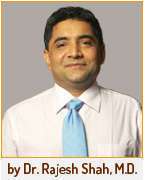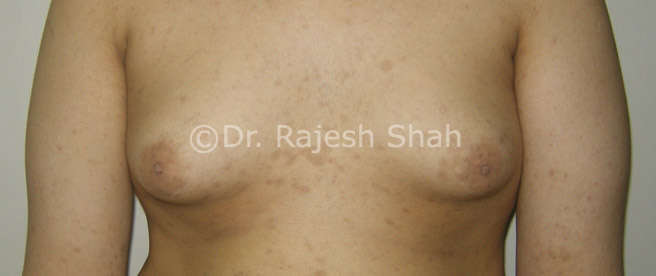
Gynecomastia and Treatment Details
Gynecomastia is a condition where males have abnormally enlarged breasts, due to increased proliferation of breast tissues.
Causes:
All men have both androgen and estrogen hormones, that is male and female hormones. When there is alteration in androgens and estrogens balance then it results in Gynecomastia.
Other causes of Gynecomastia:
- Chemotherapy for cancer
- Deficiency of testosterone
- Marijuana use
- Radiation treatment for testicles (leading to testosterone deficiency)
- Chronic liver disease
- Hormone treatment for testicular cancers
- Chronic renal failure
- Hyperthyroidism
- Malnutrition
- Klinefelter's syndrome
- Trauma
- Infections
- Unknown reasons
Certain medications can cause Gynecomastia. They interact with the natural levels of testosterone and estrogen, and upset the balance.

- Hormones (androgens, anabolic steroids, estrogen agonists)
- Anti-ulcer medications such as cimetidine
- Antibiotics (isoniazid, ketoconazole, metronidazole)
- Cardiovascular drugs, such as captopril and digitoxin
- Cancer chemotherapeutics for prostrate cancer.
- Psychoactive agents, such as diazepam and tricyclic antidepressants
Symptoms:
- Enlargement of male breast
- Tenderness and sensitivity may be present
Diagnosis:
- Physical examination
- Past medical history
- Mammogram in case of cancer suspicion
Social impact:
Gynecomastia may not be considered a serious medical condition, however, it has great impact on the mind of the person having it. Low self-esteem may lead to poor social networking, which may lead to some sort of anxiety and depression in some patients.
Treatment for Gynecomastia:
Treatment for Gynecomastia depends on the cause of the Gynecomastia. The underlying cause has to be taken into consideration for the treatment.
- In pubertal cases, one should wait and watch as condition resolves by itself.
- If it is drug induced, then offending medications should be stopped.
- Surgery, for cosmetic reason and when there is pain and tenderness.
Counseling:
Counseling by an expert helps patients of Gynecomastia feel comfortable with themselves.
Homeopathic approach for Gynecomastia:
Homeopathy does not have any significant role to play in the cases of Gynecomastia. Homeopathy is not recommended.